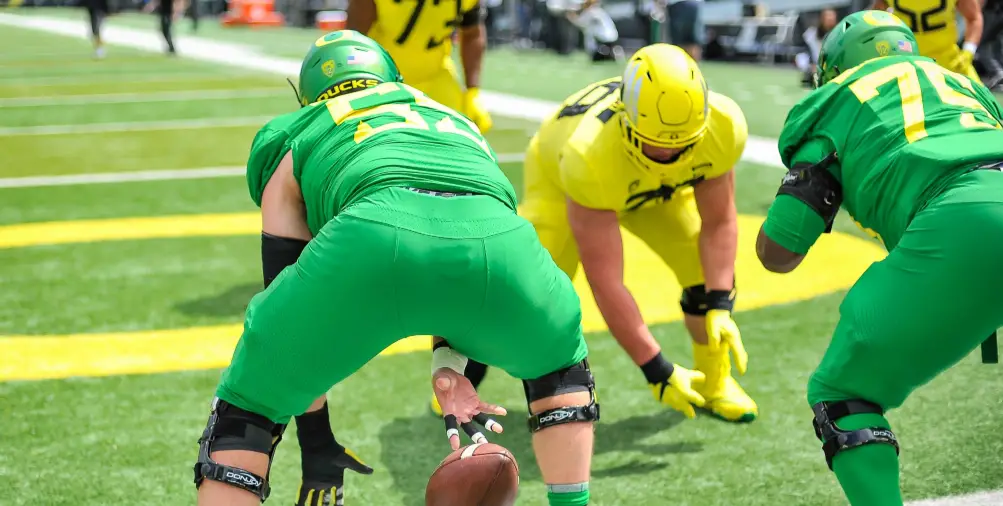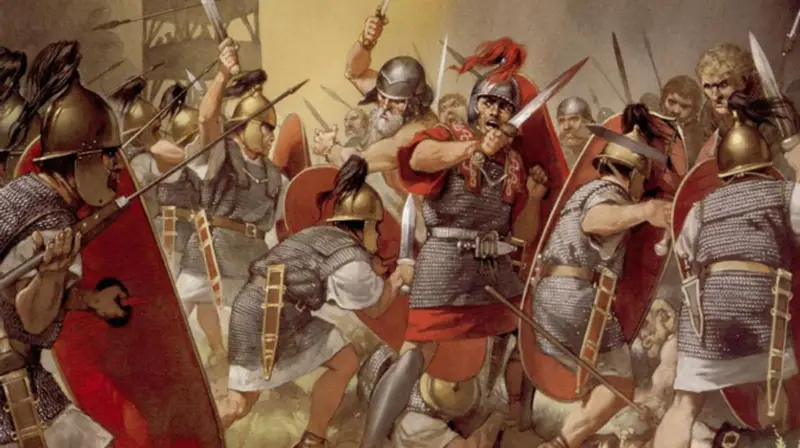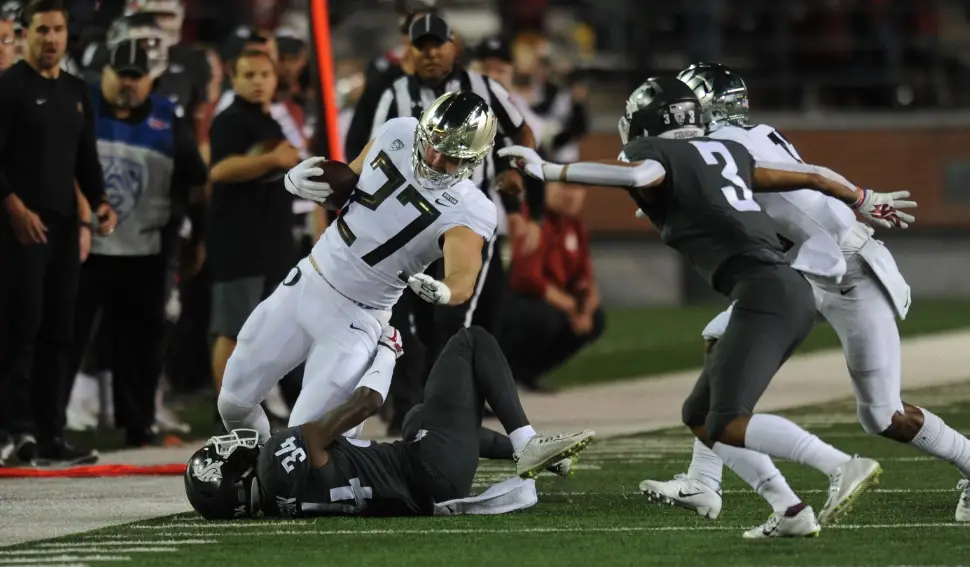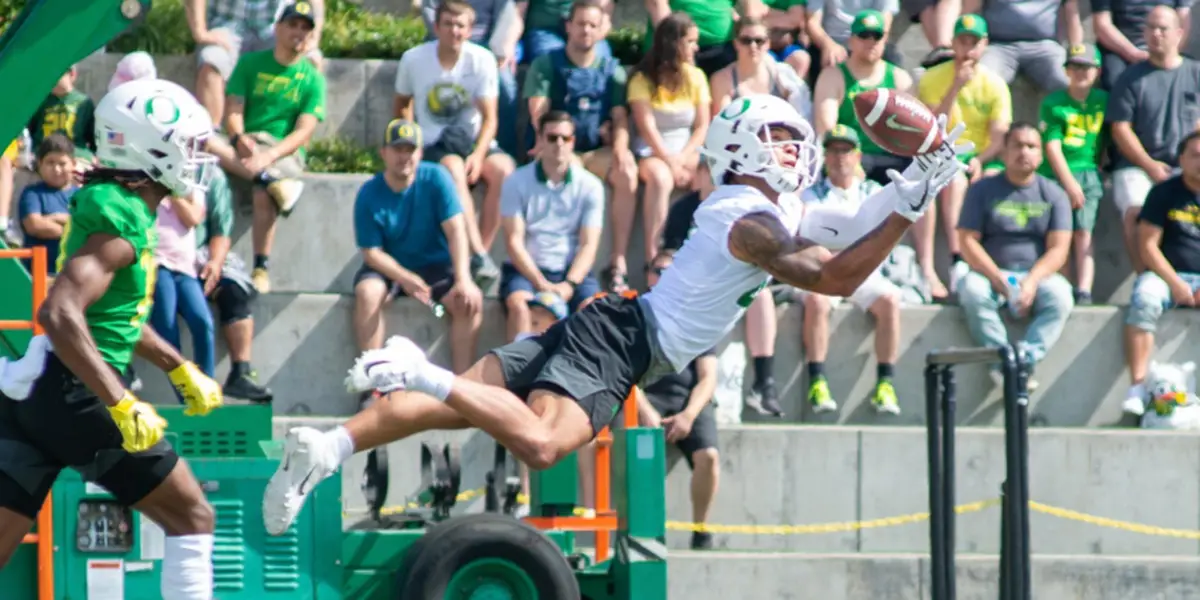Mario Cristobal has convinced me that he has chops. However, the exact size of those chops is still an open question.
Ugly Duckling wrote a great piece recently that focused on how absolutely critical it is to the long term success of winning programs to have proper roster management. That got me to thinking not only about roster management, but also about other “crucialities.” So, today’s article is essentially a response to Ugly Duckling. (Thanks, Charles Fischer, for creating a website where this kind of longitudinal discussion can thrive.)
Here is a preliminary list of three areas where I expect to see significant growth this year. Think of them as “chop-o-mometers.”
1) Roster Management
Ugly Duckling focused on what might be called vertical depth, a classic depth chart with “ones” and “twos,” etc. His main point was that giving the backups substantial and meaningful numbers of snaps throughout the season prepares for the future. Amen! What I would hasten to add however, is the need for horizontal depth as well.
When I was in the military, every member of the platoon cross-trained on every weapon and piece of equipment that was structural to the platoon. If the mortar-man goes down, you need ready replacements. That is horizontal depth.

The Ducks need to build depth.
There are hints that Cristobal is implementing this. He recently said, for example, that the team has an “organizational chart” rather than a “depth chart.”
Remember the Alamo! (Bowl). When our Notre Dame transfer center Matt Hegarty went down, we had no reliable backup. (By the way, I lay that at the feet of Mark Helfrich, not the backup Doug Brenner.) Ideally, every member of the O-line, for example, should have enough practice at every other position so that when a man goes down, multiple replacements are available, not just backups at that same position.
I expect to see a ramping up this year of both vertical and horizontal depth.
2) Practices
Josephus (author of History of the Jewish War) cites a saying about the Roman Army (attributed to Emperor Tiberius), that their “drills were bloodless battles, and their battles were merely bloody drills.”
We play no better than we practice: “iron sharpens iron.” Winners want to compete against the best, to practice daily against elite opposition. We are hearing that Fall Camp is seeing a lot of that. For example, in a recent interview with Justin Hopkins, cornerback Thomas Graham said that teammate Johnny Johnson III was the hardest receiver to cover in practice due to his “twitchiness.” Competition ups both of their games.

The Romans practiced religiously for battle.
The elite defensive players that we have been able to recruit lately (Kayvon Thibodeaux, Jordan Scott, etc.) are making their offensive counterparts better. And, concurrently, the competition within each position group is growing more intense.
Practices under Chip Kelly were legendary, but when he left, much of that intensity in practices left with him. Thankfully we are seeing a return to the kind of practices that lead to Pac-12 championships and premier bowl appearances.
Listen to a reliable expert on the absolute importance of practice. Vince Lombardi, lecturing his team about mastering the famous Packer Sweep, said:
“Gentlemen, if we can make this play work, we can run the football … You think there’s anything special about this sweep? Well, there isn’t. It’s as basic a play as there can be in football. We simply do it over and over and over. There can never be enough emphasis on repetition. I want my players to be able to run this sweep in their sleep. If we call the sweep twenty times, I’ll expect it to work twenty times … not eighteen, not nineteen.”
I expect the intensity and competition in practices to be seriously escalating.
3) Road Warriors
Elite teams travel well. Period.
Lately, we have not: in the past few years we have repeatedly lost road games that we had no business losing.
Other explanations have been offered up, but I attribute much of our failure on the road to a lack of confidence. Unfamiliar environments have robbed us of our poise. That shouldn’t be happening, and it goes back to practice. When you can run a play in your sleep, when you have practiced a play hundreds of times (see No. 2 above) against elite defensive players (see No. 1 above), poise and confidence are natural results, and you travel well.

The Ducks struggled on the road in 2018.
The 1986 movie “Hoosiers” has a great scene about confidence overcoming an unfamiliar venue. Gene Hackman plays the coach of a small-town high school basketball team that in Cinderella-like fashion makes it to the championship game.
When the team walks into the arena on the day before the game, it is so large that they are star-struck and overwhelmed. Tossing them a tape measure, Hackman’s character tells them to measure all of the floor’s dimensions, the height of the rim, etc. He then points out that it’s the same court as the one they play on at home. Their confidence returns, and they go on to win the title.
This may not be our year to win the title, but the necessary building blocks for it certainly seem to be getting put in place. We have five road games this year: Auburn, Stanford, Washington, USC, and ASU. Those are all winnable games: we are either favored, or the game is essentially a tossup.
Winning three of them would be an indicator that our confidence has returned, and our “Road Woes” just might be in the rear view mirror. Four would be extremely solid evidence. Five? Oh my!
So what will the “Chop-o-mometer” be doing at season end? Barely moving, or pegging the needle?
Hopkins over at ScoopDuck observed recently that if we as fans are smart enough to see that a certain something needs to be done, then rest assured that the coaching staff certainly does as well.
I have a feeling that we are going to be pleasantly surprised this year.
Lou Farnsworth
Fontana, California Top Photo From Twitter
 Bob Rodes, the FishDuck.com Volunteer editor for this article, is an IT analyst, software developer and amateur classical pianist in Manchester, Tennessee.
Bob Rodes, the FishDuck.com Volunteer editor for this article, is an IT analyst, software developer and amateur classical pianist in Manchester, Tennessee.
Lou was raised in Eugene. He moved there in 1959, at the age of nine, when his father joined the faculty at the U of O. The first Duck football game that he can remember occurred at Hayward field: a 1963 loss to San Jose State. After serving in the Army from 1968-70, he returned to Eugene, worked in the woods for a few years; and then eventually earned a degree in Mathematics Education from the U of O in 1976. For the past 43 years he has taught secondary mathematics, mostly in southern California. He lives there with Shawn, his wife of 37 years, who is also an Oregon alum. Together they have two sons and a daughter. He retired in June of 2019. When Shawn retires in June of 2021 they will be moving to Pueblo, Colorado.

